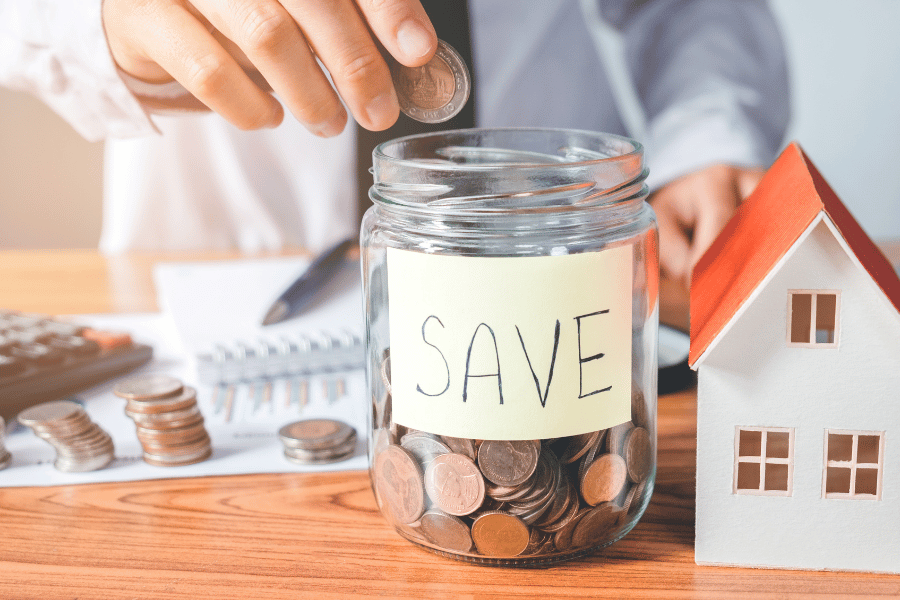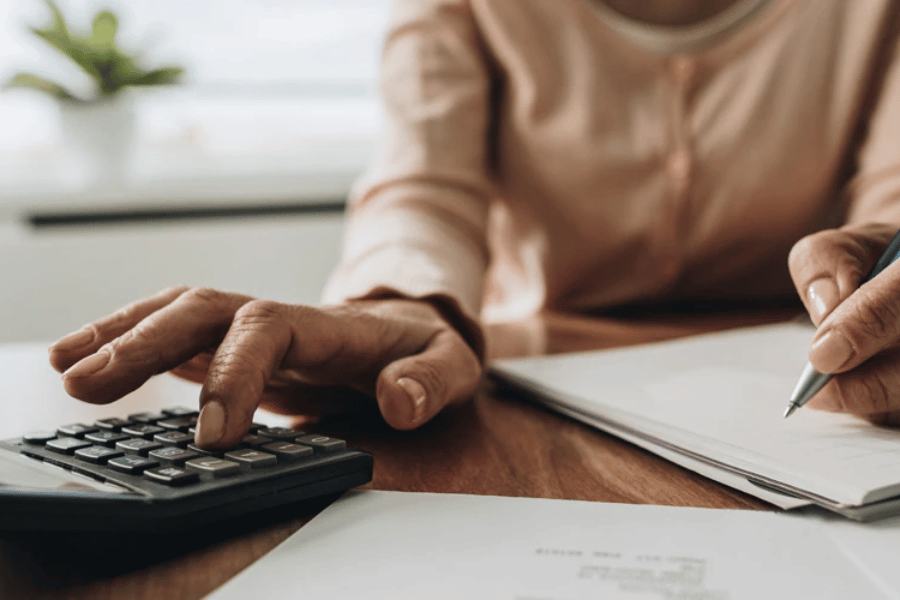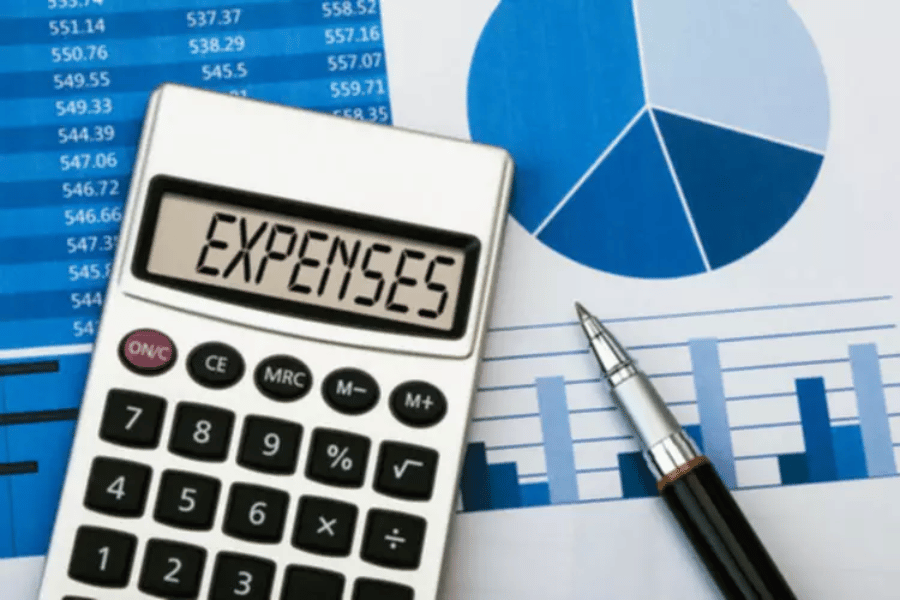What Are Prepaid Costs When Buying A Home?
February 24th, 2023

What Are Prepaid Costs?
Are you purchasing a home soon and need to plan for how much money you will be spending? Follow along as we discuss the prepaid cost you need to be aware of when buying a home!
Buying a home comes with a lot of responsibility but also money. It can seem pretty simple. First, you drive around, look through listings, find one that fits into your price range, and submit an offer! But that's not all that's involved. You should be aware of many hidden or prepaid costs before you decide to purchase a new home, move, or sell your current home. When buying a home, most buyers expect to cover the down payment and closing cost, but there are always additional fees that are the buyer's responsibility as well.
In this guide, we're going to break down every prepaid cost you could be responsible for before buying a home.

Chapters
What are prepaid costs?
Prepaid costs are defined as payments made at closing for upcoming line items of your new home loan. They are called prepaid costs because you technically pay for them before they are due. The most common types of prepaid costs are homeowners insurance, property taxes, mortgage interest, initial escrow deposit, and more. Your mortgage loan estimate document typically outlines the costs you are expected to pay. A loan estimate is a three-page form that tells you important details about a mortgage loan you have requested. It includes information on your loan terms, projected payments, closing costs, loan costs, other costs, cash to close, and more.
When you make a prepaid payment, it is placed into an escrow account to cover mortgage expenses that are included in monthly homeownership-related fees. When it comes time for an amount to be due, your lender will withdraw from the escrow account to cover expenses. Making these prepaid costs ensures you won't need to pay any additional costs.
Homeowners Insurance
Homeowners insurance is one of the most common prepaid costs included in the mortgage. It is up to your lender to determine how much is going to be collected, but it is typically six months to a full year of prepaid homeowners insurance. Your lender will collect property taxes from you at this time. as said before, your prepaid amount will be deposited into an escrow account.
Homeowners insurance covers damage to your home, property, personal belongings, and other assets in your home. As a result of your property being repaired or rebuilt, homeowners insurance also typically covers living expenses above your normal living costs if a covered loss forces you to stay elsewhere during that time. Homeowners insurance protects you and your mortgage lender, so your lender will want proof that you've purchased insurance before they give you a loan to buy a home.
The local government levies property taxes on property owners within their locality. The government used taxes to provide taxpayers with various services, including schools, police, fire, garbage collection, and more. Property taxes are typically due annually and are based on your home's value and the property tax rates for the county or city in which you reside.
Initial escrow payment at closing
Another prepaid cost you should expect to pay is your initial escrow deposit. Your initial escrow deposit is the money deposited with the lender that will be used to pay future homeowners insurance and property taxes. This escrow deposit acts as a cushion in your account and will be held in escrow even after your first payment begins. Richi Helali, a mortgage sales leader, said, "Normally, in an escrow account, what needs to be collected is what's needed to ensure that when taxes and insurance are due, they can be paid in full, but also a two-month cushion." The amount you will have to pay varies, so it's best to consult your lender to determine that amount or if it needs to be paid in the first place.
Escrow is defined as a legal arrangement in which a third party temporarily holds money or property until a particular condition is met. Regarding your mortgage, escrow is an easy way to manage property taxes and insurance premiums. The buyer in a transaction always owns the money that is held in an escrow account.
Mortgage interest
Another common prepaid cost in a real estate transaction is mortgage interest. Interest is collected in advance so your lender can put it directly towards the first mortgage payment. Mortgage interest is the interest charges on a loan used to purchase a piece of property. Interest is the money you pay to your mortgage lender in exchange for giving you a loan. Your annual percentage rate (APR) is the actual amount of interest that you pay on your loan per year. Your interest rate can depend on your credit score, income, down payment, location of your home, etc.
Specific Hazard Insurance
You may also need to obtain specific hazard insurance. This type of insurance depends on your area and is used to protect against specific hazards like floods or earthquakes. Like the other, your lender will collect one year of the insurance premium, and it will be paid out of your escrow account in the same way as your homeowner's insurance.

Calculating prepaid costs
No prepaid costs are alike, so there are different ways to calculate how much you will pay for each. In this next section, we are going to break down how you can calculate/determine your homeowner's insurance premium, property taxes, and mortgage interest. If you aren't too sure, you can consult your lender or an expert.
When determining prepaid costs for homeowners insurance, it's important to remember that homeowners insurance can vary based on the location, age, and condition of the home, your credit score, your history of premiums, etc. The average annual homeowner's insurance premium in the U.S. is $1,249. When calculating your homeowner's insurance prepaid costs, it's best to consult with your mortgage lender for an estimate or an expert like an insurance agent.
Property taxes are based on where you live and the county or city's tax rates. The easiest way to calculate property taxes is to take the property's assessed value and multiply it by the local tax rate.
Assessed value equals the appraisal or fair market value less any deferred or exempt value. The assessed value is calculated by multiplying the appraised value but the assessment ratio.
For example, wake county's average effective property tax rate is 0.77%. Let's say you want to purchase a home with an assessed value of $367,100. To calculate your property tax, you're going to multiply $367,100 by 0.77%. After calculating these numbers, you should expect to pay about $2,826.67.
The amount you'll pay for property taxes may also include money from the seller depending on when the property taxes are due - or you may owe them money.
A main factor in calculating your prepaid mortgage interest is what time of the month you close on your home. The closer to the month-end you close, the less you'll have to pay. Prepaid interest is typically calculated using the first day of accrued interest on your mortgage balance.
Let's say you want to purchase a $200,000 home loan with an annual interest rate of 3.5%. To calculate, you'll start off by taking your annual interest rate of 3.5% and dividing it by 365. YOu should get 0.0096%. Next, you'll multiply your daily rate of 0.0096% by 200,000. You should get $19.18. Lastly, you'll multiply $19.18 by the number of days between closing and payment to find the prepaid interest charge.
Prepaid costs vs. Closing costs
It's easy to confuse these two because they are paid around the same time. However, there are differences. An excellent way to remember the difference is prepaids are paid during the closing process, while closing costs are paid for the services of closing on a mortgage. Closing services include attorney and title companies, document drafting, recording fees, and more. Another difference is that prepaid costs are the buyer's responsibility, but the seller may offer to pay the closing costs in a transaction. The closing costs you are required to pay will be listed on your closing disclosure.
A closing disclosure is a five-page form that describes the critical aspects of your mortgage loan, including purchase price, loan fees, interest rate, an estimate of real estate taxes, insurance, closing costs, and other expenses.

What is an escrow account?
As previously said, escrow is defined as a legal arrangement in which a third party temporarily holds money or property until a particular condition is met. There are many different ways escrow is used to describe different things. The phrase "in escrow" refers to the time between the offer and the close of the sale. This is used when the buyer and the seller sign the purchase contract, and the buyer's earnest money is deposited into the escrow account. From there, the home is said to be in escrow.
You also have your escrow account. An escrow account is essentially a savings account that is overseen and monitored on your behalf. The escrow account that is opened during the buying process will hold your earnest money deposit and all funds you wire for your down payment and closing costs. These funds will be held in your escrow account until it's time to pay at closing.
After closing, your lender will open a new escrow account that holds your prepaid costs. Regular mortgage payments are paid to your lender. However, your new escrow account holds property taxes and homeowners insurance until the payments are due.
FAQ
Are prepaids the same as escrow?
No. You put money for prepaids into an escrow account, but the account in escrow may be greater than the initial period.
What are prepaid costs?
Prepaid costs are payments made at closing for upcoming line items of your new home loan.
What is the difference between closing costs and prepaid?
Closing costs are the fees you pay to your lender and other third parties for administering and processing the loan. Prepaids are the expenses you have to pay upfront to other parties.
What are the most common prepaid expenses?
Property taxes, homeowners insurance, and mortgage interest.
Is earnest money a prepaid expense?
No. Earnest money is made as an initial prepayment in the sale process.
Why do we pay prepaid costs?
Prepaid costs are paid to ensure that if something goes wrong, lenders are able to recoup their investments. For example, if you had not paid your homeowners insurance and your house is destroyed in a natural disaster, the lender can recover the money you owe through your escrow account.

What Are Prepaid Costs When Buying A Home - Final Thoughts
Many homebuyers prepare and save up to make the down payment for their mortgage and cover closing costs but forget or aren't aware of other costs involved. Prepaid costs, aka prepaids, are upfront cash payments made to third parties involved in the process before any down payment is made. As previously said, prepaids can include homeowners insurance, property tax, and mortgage interest. Understanding these costs before buying a home is essential to ensure you have the funds to cover them.
It's essential to budget, plan, and prepare before buying a home. So, if you've done just that and are ready to purchase your dream home, we're here to help! Raleigh Realty is a local real estate company specializing in helping people through the home buying and selling process., We have some of the best agents in the area that would be more than happy to help you along your journey. Contact us or visit our website for more information!

Ryan Fitzgerald
Hi there! Nice to 'meet' you and thanks for visiting our Raleigh Real Estate Blog! My name is Ryan Fitzgerald, and I'm a REALTOR® in Raleigh-Durham, NC, the owner of Raleigh Realty. I work alongside some of the best Realtors in Raleigh. You can find more of my real estate content on Forbes, Wall Street Journal, U.S. News and more. Realtor Magazine named me a top 30 under 30 Realtor in the country (it was a long time ago haha). Any way, that's enough about me. I'd love to learn more about you if you'd like to connect with me on Facebook and Instagram or connect with our team at Raleigh Realty. Looking forward to connecting!

